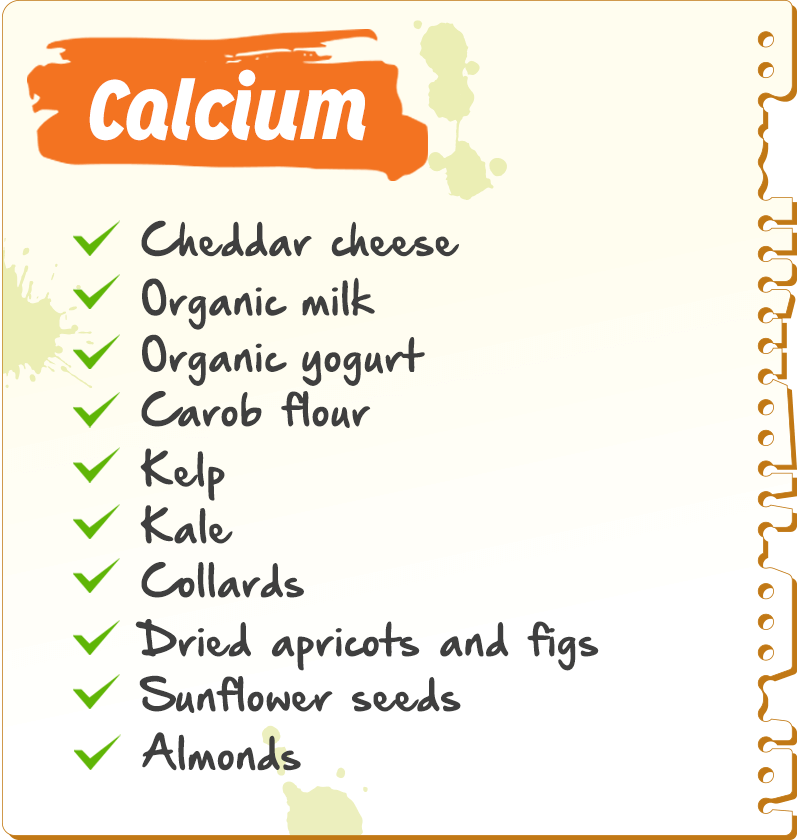Calcium
Everyone knows that if you want to have strong and healthy bones and teeth, you need to get enough calcium and exercise regularly. But what most don’t know is how important it is to balance your calcium intake with vitamin D, K2, and magnesium. Vital to your everyday health, calcium is particularly important during periods of growth and during pregnancy and lactation.
Fast Fact: Calcium, the most abundant mineral in your body, constitutes almost 2% of your total body weight.
Why You Need It: In addition to being fundamental to healthy teeth and bones, calcium is used by every cell in your body. Calcium helps your muscles contract, your blood clot, your cells communicate and your heart maintain a regular heartbeat. It helps regulate blood pressure, assists with secretion of insulin and other hormone secretion, and might even help you maintain a healthy body weight. In its carbonate form, calcium reduces stomach acidity and prevents heartburn. Emerging research indicates calcium may help prevent certain cancers.
Research is increasingly showing that too much calcium in supplement form, even in amounts once thought beneficial, and in the absence of sufficient amounts of its “partner” nutrients, calcium can do more harm than good. Here’s why it’s so important to balance your calcium intake with the complementary nutrients vitamin D, vitamin K2 and magnesium. Vitamin D maintains skeletal calcium balance by promoting calcium absorption in your intestines. Calcium and phosphate depend upon Vitamin D for bone formation. Vitamin K2 helps to cement the calcium you absorb into the bone matrix rather than depositing it on the inside of your blood vessels leading to atherosclerosis. And magnesium is an important mineral that your body needs to build a strong bone matrix. Calcium is also a partner to vitamin B12 by helping your body absorb this essential B vitamin.

× ![]()
Best Food Sources: Top sources include kelp and other seaweeds, cheddar cheese and carob flour. Dairy products (particularly organic, grass-fed and finished milk, cheese and yogurt from pastured-raised cows), kale family and other leafy green vegetables (collards, mustard and turnip greens, kale, bok choy, broccoli, and cabbage), dried apricots and figs, and sunflower seeds are rich in calcium. Nut sources include almonds, Brazil nuts, and walnuts.
Supplement Suggestions: Calcium from dietary sources is typically better absorbed and utilized than calcium from supplements. When you supplement, often-recommended forms include calcium carbonate, calcium citrate or citrate-malate. Supplement only what you’re not getting in your diet, don’t supplement with more than 500mg at a time, and take at least 2 hours apart from your multivitamin.
Need to Know: Calcium needs to be balanced with vitamin D, K2 and magnesium so it doesn’t do more harm than good.
Check out our food and supplement shopping tips.